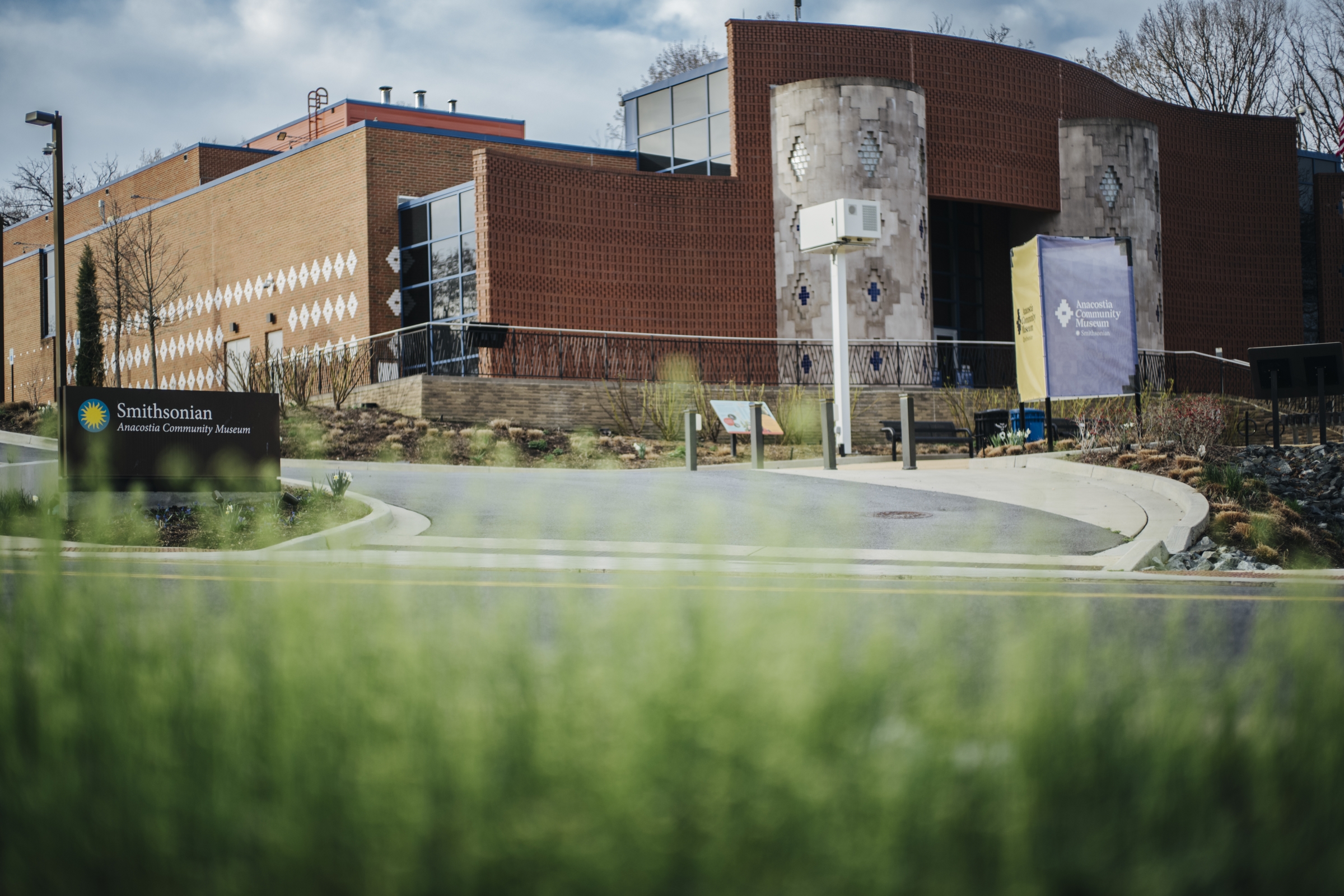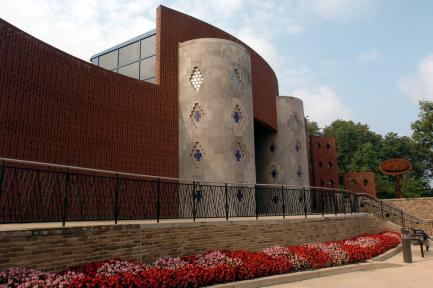Anacostia Community Museum
Director: Melanie A. Adams
Total Full-time Employees: 22
Number of Artifacts: 3,380
Background
The Anacostia Neighborhood Museum (original name) was established in a converted Southeast Washington, D.C., movie theater in 1967 to bring the Smithsonian off the National Mall and into the local community. The initial mission evolved under the leadership of the first director John R. Kinard, as the museum became a means for people to voice their concerns about city life while encouraging local forums of cultural expression. In 1991, the museum became simply the Anacostia Museum, adding collections and opening major exhibitions focused on African American history and culture.
In 2006, the name was changed to the Anacostia Community Museum to reflect the change from ethnic themes to broader social and cultural issues faced within communities. Today, the Anacostia Community Museum aspires to illuminate and share the untold and often overlooked stories of people furthest from opportunity in the greater Washington, D.C., region. The museum’s mission is to tell stories of everyday people making impactful changes, who use their collective power to tackle complex issues and advance a more equitable future for all. While local in nature, these stories are relevant to people and communities across the nation.
Research
The Anacostia Community Museum remains grounded in its founding principles and continues researching, documenting and engaging with communities, with an emphasis on the Washington metropolitan area. Specific areas of focus are civic and community life, everyday traditions, art and creativity, and the built and natural environment. Through community-based documentation and research—including extensive oral-history interviewing, photo documentation, community surveying and mapping—the museum offers insights about the wide range of historical, social, political, economic and environmental forces shaping communities.
In spring 2023, the museum launched the Center for Environmental Justice (CEJ), a research hub that centers community, raises awareness of systemic injustice, crafts community-driven solutions for environmental issues and encourages others to see their own power in creating a more equitable, healthy, and just environment. Under CEJ, the museum hosts an annual Women’s Environmental Leadership Summit, convening women leaders in environmental advocacy and activism for workshops and panel discussions.
Collections
The museum’s collections consist of objects and archival materials that document urban communities and the lives of urban residents, from home life and everyday activities to the community-building efforts of artists, activists and others. Holdings range from folk art and handsewn quilts to political banners, audiovisual materials, photographs and personal and institutional papers. Strengths include family and community history, the Washington metropolitan area and African American history and culture. The collections and library are available to researchers by appointment.
Exhibitions
The museum presents changing installations and exhibitions that bring to light the unsung stories of people who are emboldened to catalyze change in their neighborhoods and communities.
Education/Outreach
Education programs at the Anacostia Community Museum are multidisciplinary in their design and are developed to engage diverse audiences in the greater metropolitan area. While most programs relate directly to current exhibitions, research and collections, others engage specific audiences in recognition of the community and cultural diversity. For example, the museum celebrates Earth Day, Juneteenth and Kwanzaa. Its community forums focus on issues with broad regional, national or international resonance, and are developed in collaboration with local partners. CEJ engages youth through its yearly Environmental Justice Academy cohort and its seasonal gardening program, Growing Community.
About the Museum
The Anacostia Community Museum is located at 1901 Fort Pl. S.E. in Washington, D.C., and is open from 10 a.m. to 5 p.m. daily (closed Dec. 25). Admission is free. For more information, visit the museum’s website or call (202) 633-4820 for general information.
# # #
SI-13-2024
Katelynd Anderson
202-417-5045
Sophia Ancira
202-718-3290


